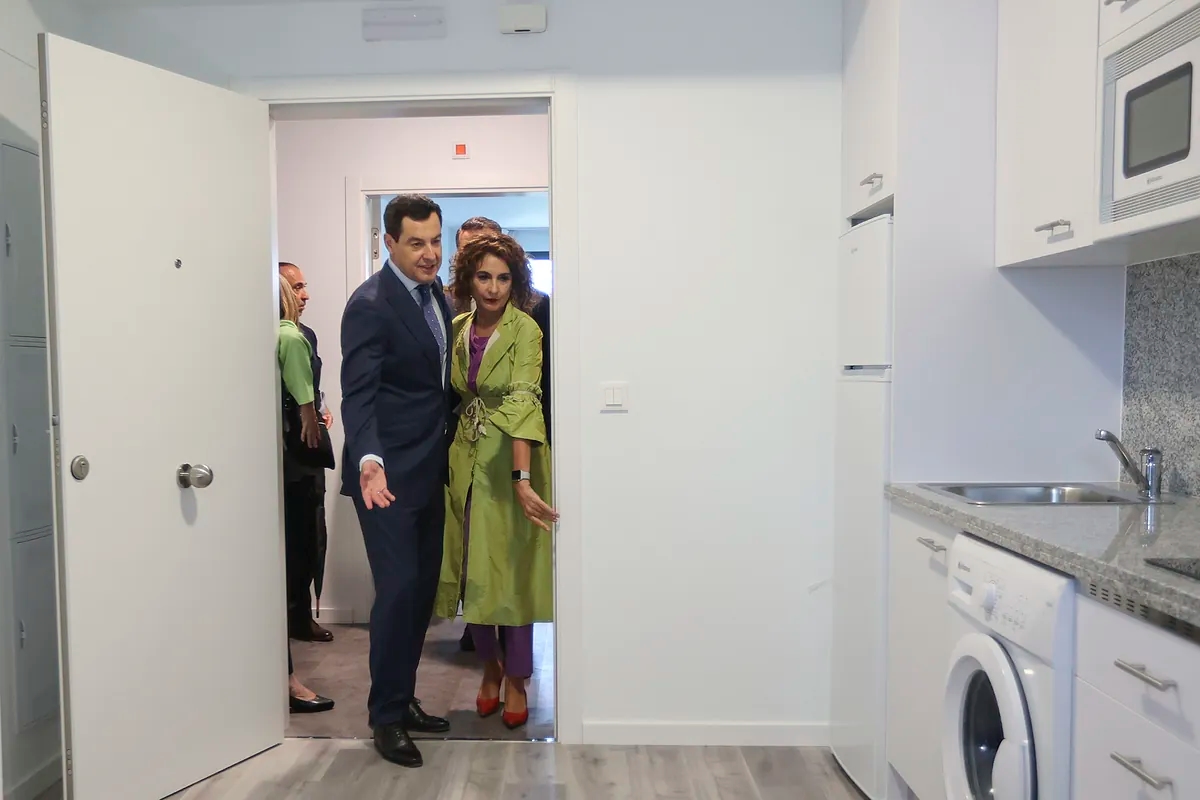From the decline of Evo Morales to "popular capitalism": how Rodrigo Paz, Bolivia's new president, thinks
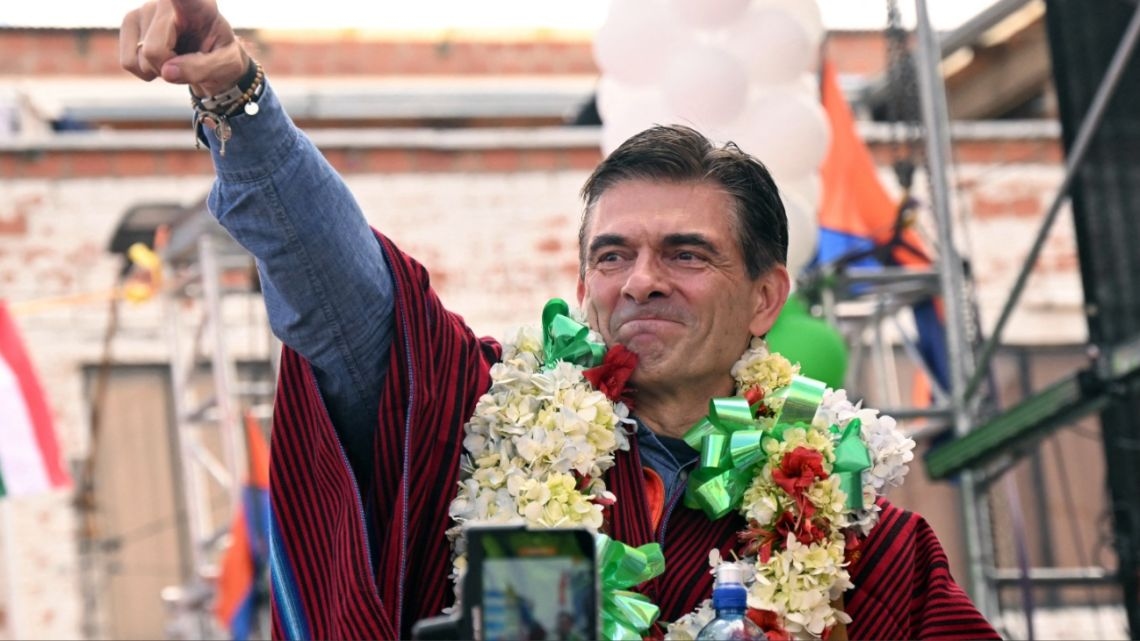
At 54, Rodrigo Paz Pereira won the Bolivian presidency with a slogan that sounds provocative and pragmatic and serves as a summary of the Andean country's political turmoil of the last six years: "Popular Capitalism." The son of the historic social democratic leader Jaime Paz Zamora, the president-elect built his career on the foundation of exile, relations with the Latin American political class, the influence of neoliberalism on Bolivia's political scene in the 1990s, and the rise of the Movement Toward Socialism (MAS) as the hegemonic party for nearly two decades.
Considered a "new" and "young" leader—despite his extensive political career—the senator from Tarija managed to capitalize on the erosion of the political space founded by Evo Morales , who had attempted to run for a third term but was disqualified by the courts. He did so with a discourse that he himself defines as "capitalism for all," a concept that seeks to differentiate him from both the "statist" model of the MAS (author of the Bolivian economic miracle ) and the orthodox, pro-IMF liberalism, a flagship of the electoral option that Bolivians discarded this Sunday: former president Jorge "Tuto" Quiroga.
Amid the decline in legitimacy of Luis Arce 's government—for economic and political reasons—on October 19, the political transition was consolidated at the polls in a "calm" day, as the Bolivian electorate is accustomed to. Speaking with PERFIL , Dolores Gandulfo, director of the COPPAL Electoral Observatory and international observer during the runoff, described a "calm and participatory" electoral process .
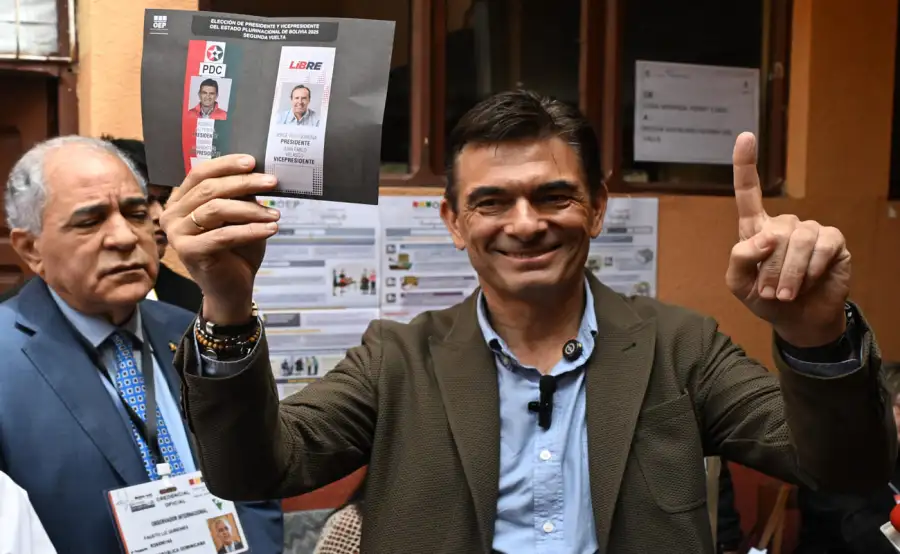
"Elections are peaceful in situations where there's no conflict. Except for the coup d'état, they're usually peaceful. People participate a lot, voting is mandatory, and everything is closed : no one can move around except with permits," explained Gandulfo, a graduate in International Relations and a doctoral candidate in Political Science.
"In this election, compared to the first round, there was a greater presence of party delegates. In the first round, Evo hadn't called, and there weren't as many delegates. That makes the election very fluid. There are no reports of incidents at the closings ," he noted.
After 9 p.m., it was confirmed that with 54.5% of the votes , Rodrigo Paz—who until the first round was aspiring to third place at most—will be the next occupant of the Palacio Quemado starting November 8. His victory marks a turning point (at the very least) in the political cycle initiated by Morales, one of the founders of the Latin American left in the 2000s, in a chronology marked by the attempted coup d'état in 2019, the imprisonment of Jeanine Áñez, the inauguration of the former Minister of Economy of the MAS and, finally, his irreconcilable fight with his political godfather.
From the decline of Evo Morales to the "popular capitalism" of Rodrigo PazRodrigo Paz, a product of the demand for renewed political leadership in Bolivia, comes to power promising to organize an economy plagued by a fiscal deficit, currency restrictions, and lines of up to ten hours to get fuel. He explained that his program is based on four pillars : reducing the deficit, establishing a more transparent exchange rate, guaranteeing the autonomy of the Central Bank, and creating a stabilization fund.
However, part of his centrist strategy is to avoid breaking with the social fabric that supports Evo Morales, a central figure in Bolivian politics, who in the first round had called for a null vote. "This time, he didn't do it," observed Gandulfo, who emphasized that "Evo gave clear signals in favor of Rodrigo Paz." "The MAS supported Rodrigo to consolidate the right-wing vote," he stated.
According to data monitors were using prior to the final count, the previous digital trend showed Paz with around 54% of the voting intention, with 5% of the votes spoiled. Since then, the euphoria of Paz's party, originally leftist but currently associated with the center-right, opened the way for the challenge that his presidency will pose: governability. That is, finding a balance between economic adjustment and political dialogue with the sectors that respond to Morales.
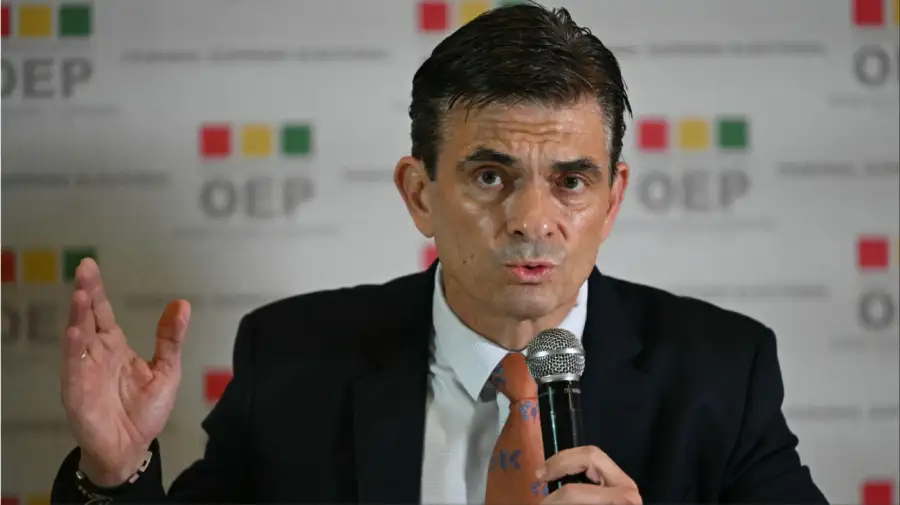
"Paz is someone who can engage in dialogue with Evo's camp," Gandulfo said, referring to the adjustment policies the new government will implement to alleviate the economic and currency crisis, illustrated by the everyday images of Bolivians lining up to fill up with fuel.
The former president is being held in the Chapare region, in his political stronghold of Cochabamba, surrounded by supporters who are "protecting" him from an arrest warrant for alleged sexual abuse of a minor while he was president, accusations he repeatedly denied. However, from that location, he became a centerpiece of the electoral campaign, aware of his political clout and distrustful of anyone who might overshadow him. In the first round, he called for the vote to be annulled, and the result was celebrated: for the first time, the MAS, which had won four consecutive elections, was left out of the runoff. For the runoff, Morales changed his strategy: he complained about the "electoral farce" but went to vote. And after the results were announced, he celebrated on social media.
"With their vote, the people defeated the racists, haters, defamers, and violent people this Sunday; they punished the media power that trampled on journalistic ethics and practiced indecent journalism because it was not only the main driver of my proscription, in complicity with the Arce government and others, but it also took sides with the North American candidate and spread false polls," said the former president. In a bitter message on X, he accused Arce and his allies of "persecuting, criminalizing, and imprisoning indigenous people (...) becoming right-wing and submitting to the US" and facing a "corrupt management that covers up drug trafficking."
Following bombings on Gaza that left 45 dead, Israel announced it was resuming the truce.
Rodrigo Paz's governability and the ghost of EvoPaz's expected openness to dialogue, meanwhile, marked a substantial difference from his opponent, Tuto Quiroga, a "worn-out" figure among the electorate. During the campaign, the former president openly expressed his willingness to implement IMF prescriptions, a key target for Bolivians on the center-left; but he was also associated with using repression as a mechanism to sustain the adjustment.
"I think it's going to be a transition. There will be a stabilization process; we don't call it adjustment. It's stabilizing. I think the people will understand," Rodrigo Paz told AFP shortly after winning the first round, when asked how he will address the crisis in Bolivia, where 85% of the population works in the informal sector.
The senator from Tarija explained that his program is based on four main pillars : reducing the (fiscal) deficit; opening up the dollar, that is, "putting it where it belongs"; that the central bank "should not be the government's petty cash box" but rather "must have clear monetary management." And, finally, the creation of "a dollar stabilization fund."
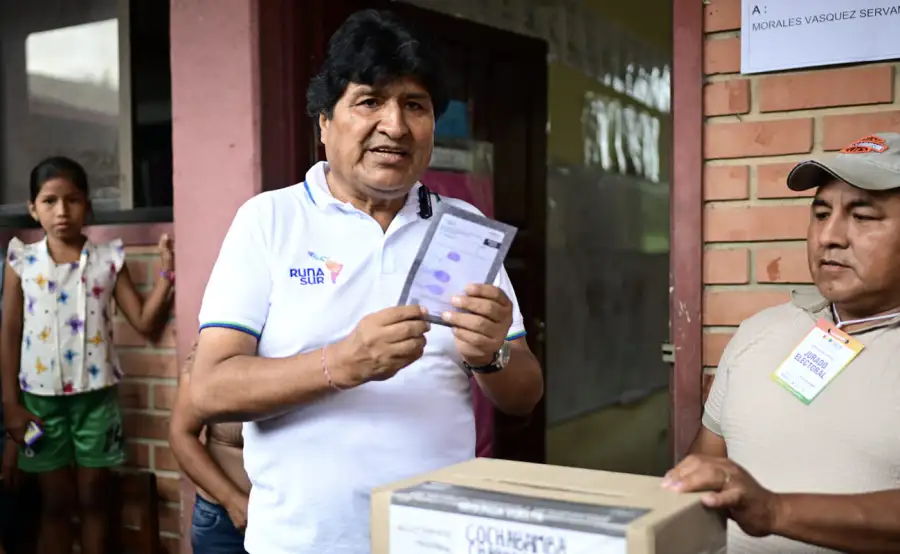
"Paz will implement an adjustment, but it is expected that he will build bridges with the sectors to contain the streets," Ganfolfi added. In her interpretation, the result expresses a vote for change : "What we see in the electoral processes is that people are voting for change and for something new ."
In foreign policy, Paz also demonstrated his more centrist stance, distancing himself from both Morales and Quiroga on divisive issues such as condemning the Venezuelan government of Nicolás Maduro or the contracts with Russia and China, a pillar of MAS policy that he promised to "review."
"Rodrigo is more inclined to regional integration and the diversification of multilateralism. He doesn't have as close a relationship with the United States as Tuto would have. He has ties to Latin America, with leaders like Martín Torrijos. I see him more along the lines of centrist progressivism, like Yamandú Orsi or Gabriel Boric," the political scientist concluded.
Once he assumes the presidency on November 8, consolidating and guaranteeing governability will be the central focus of Paz's first days in office. A minority leader, he will have to build his political muscle through concessions in the divided National Assembly. Part of the nod to Morales is the implicit promise of dialogue with the indigenous sector, the vindication of Bolivia's plurinational identity, and recognition of rights. But he also emphasizes the "institutional distance" from the legal proceedings against him. "The justice system must carry out the proceedings. What I am committed to is not interfering . We are going to implement a profound reform of the judicial system," he stated on the matter.
Meanwhile, the challenge will include building bridges with the historic leader of the coca growers and a central figure in Bolivian politics, who closed his tweet with a message addressed to his followers, but primarily to the newly elected president: "The people grant the new leaders the mandate to not destroy the Plurinational State, with sovereignty, dignity, inclusion, and social justice; to respect social rights, such as bonuses, and the State's wealth distribution policy; and to not betray the agenda of the excluded."
perfil.AR


